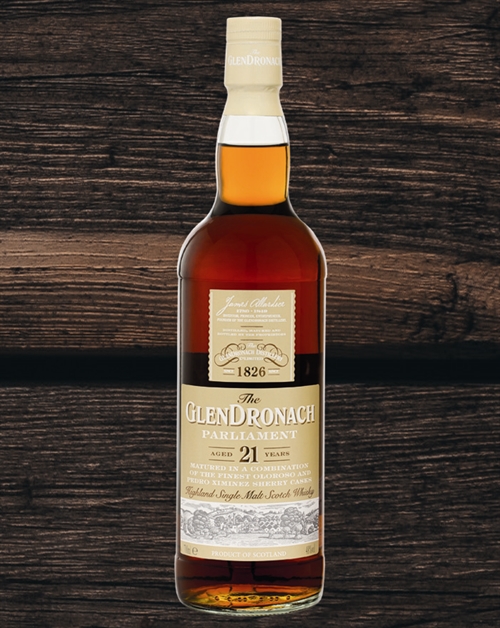Storing your whisky - Post by Whisky Magazine

Many whisky fans may have several bottles going at the same time and can probably recognize that the taste of individual bottles can change dramatically, sometimes in a very short period of time, if not stored correctly. Unopened bottles are easy to store - it just needs to be done correctly. Half-filled bottles (or half-empty, as the pessimist would put it) need different care, and we'll check that out below.
Unlike wine and many fortified wines, spirit bottles should ALWAYS be stored upright so that the cork does not come into contact with the liquid. Due to the alcohol content of the whisky, which for Scotch whisky is always 40% or more, if the bottle is lying down, the whisky will start to "gnaw" and dissolve the cork and then perhaps take both color and flavor from the cork. The small amount of evaporation from the whiskey is more than enough to keep the cork moist on unopened or nearly full bottles. If you have small bottles in your cupboard, it may be a good idea to turn the bottle upside down and moisturize the cork once a month. If you've been storing your whisky bottles in the cupboard, it's your own fault if the cork breaks when you try to open the bottle, so don't expect your local whisky retailer to replace the bottle, which is a real shame.
Avoid sunlight
Keep your whisky bottles in the tube or other tightly sealed packaging in which the whisky was delivered. Whisky hates light, especially direct sunlight. It will degrade the quality of your whisky over time and affect the color of the whisky, so make sure the bottles are stored in a dark place at the right temperature.
The right storage temperature
The best storage temperature is around 12 - 16 degrees. If you have a cellar with a humidity level of around 60%, then you don't have to worry about the corks ending up close to that humidity level, even if the bottles are standing majestically upright. If you don't have the perfect basement for storage, use a cupboard or chest where it's dark and the temperature doesn't fluctuate too much. Especially for open bottles, a constant temperature is important.
Oxygen will ruin your whisky
Some whiskies have a longer life than others. Young bottlings with a high alcohol content are far less vulnerable than, for example, a 30 to 40-year-old bottling that may have naturally dropped a lot of alcohol due to evaporation from the whisky casks. The more times you pour from the bottle, the more oxygen is added and the faster the whisky becomes "flat" and dull. As a rule of thumb, you should finish your whisky when there is more air than whisky in the bottle. You can slow down the process by, for example, adding glass balls to the bottle every time you take a dram so that there is less oxygen in the bottle. There is also a wide range of advanced equipment that can help you preserve your whisky in the best possible way. For example, pumps where you draw the oxygen out of the bottle, or equipment where you pump a mixture of nitrogen and carbon dioxide into the bottle, which then acts as a barrier between the whisky and the oxygen. The best thing to do is actually drink the whisky. That way you avoid the biggest disappointments.
Can a whisky be "corked"?
When opening a bottle of wine with a cork stopper, you should always be aware of whether the wine has propsyge (or more commonly known as cork taint). In the past, between 5-10% of all wines could have "cork taint". Could the same have been true for spirits? Yes, probably. It's just that not as many bottles of spirits are opened every day as wine bottles. And that's one of the reasons why cork tends to be less of a problem for whisky than for wine. In addition, a well-trained nose can detect amounts greater than 2 nanograms (most people need 7-10 nanograms) before it can be smelled in a wine, and actually about double that in spirits, as it is better masked by the high alcohol. Therefore, the real reason why you're less likely to find propsyge in a bottle of corked spirits is the high alcohol, which masks the propsyge better than in a wine. Many people perceive "cork" as the smell of wet dishcloth, stale bean sprouts, mold, mildew, dirt or the smell of an old, stuffy basement. It's a very unpleasant aroma that can range from almost nothing to violently disgusting. The technical term for "prop" is the chemical compound Trichloroanisole (TCA). It thrives in organic material such as cork stoppers. It is in no way harmful to your health, but it is a fault in your whisky and you should exchange the bottle with your whisky retailer. Make sure there is whisky left in the bottle when you try to exchange it.